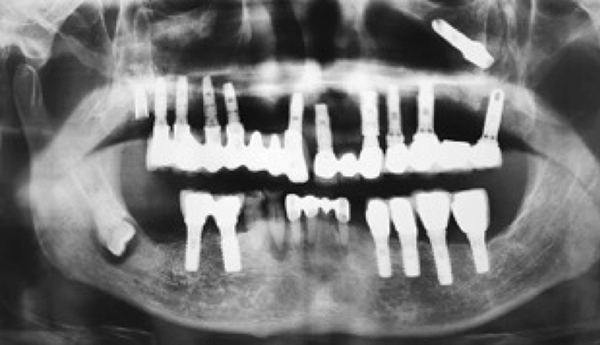Sinusitis Pubmed

Sinus Infection Sinusitis Types Causes Symptoms Treatment
Pathological changes in the maxillary sinus mucosae of.
Zinc Sulfate Znso4 Pubchem
Odontogenic maxillary sinusitis accounts for 10-12% of the total cases. 1maxillary sinus is prone to odontogenic infections due to expansion of long-term, chronic apical periodontitis, radicular cyst, odontogenic jaw cyst, intrusion of apparatus or root canal filling materials, invasion of surgical dental extraction-induced residual tooth root, dental implant-induced maxillary sinus augmentation, and even "le-fort" maxillary osteotomy. 1,2. Axelsson a, brorson je. the correlation between bacteriological findings in the nose and maxillary sinus in acute maxillary sinusitis. laryngoscope. 1973 dec; 83 (12):2003–2011. van duijn np, brouwer hj, lamberts h. use of symptoms and signs to diagnose maxillary sinusitis in general practice: comparison with ultrasonography. bmj. Endoscopic endonasal approach to sphenoid sinus is the technique of choice. the location of sphenoid sinus disease, the extent of the surgery, and anatomic configuration of the sphenoid sinus are the main factors that help to decide the most suitable surgical approach to ncbi sinusitis the sphenoid sinus. pmid: 26575516 [pubmed in process] sign in to ncbi.
Chronic rhinosinusitis is an inflammatory disease of the paranasal sinuses that occurs in 1% to 5% of the u. s. Acute sinusitis often starts as a cold, which then turns into a bacterial infection. allergies, nasal problems, and certain diseases can also cause acute and chronic sinusitis. symptoms of sinusitis can include fever, weakness, fatigue, cough, and congestion. there may also be mucus drainage in the back of the throat, called postnasal drip.
Sep 19, 1992 · axelsson a, brorson je. the correlation between bacteriological findings in the nose and maxillary sinus in acute maxillary sinusitis. laryngoscope. 1973 dec; 83 (12):2003–2011. van duijn np, brouwer hj, lamberts h. use of symptoms and signs to diagnose maxillary sinusitis in general practice: comparison with ultrasonography. bmj. Introduction: acute sinusitis is defined pathologically, by transient inflammation of the mucosal lining of the paranasal sinuses lasting less than 4 weeks. clinically, it is characterised by nasal congestion, rhinorrhoea, facial pain, hyposmia, sneezing, and, if more severe, additional malaise. Sinusitis. josephson js(1), rosenberg si. author information: (1)nasal and sinus center, new york, new york. pmid: 7924176 [indexed for medline] publication types:.

Introduction: acute sinusitis is defined pathologically, by transient inflammation of the mucosal lining of the paranasal sinuses lasting less than 4 ncbi sinusitis weeks. clinically, it is characterised by nasal congestion, rhinorrhoea, facial pain, hyposmia, sneezing, and, if more severe, additional malaise and fever. Na. keywords: odontogenic sinusitis, rhinosinusitis of dental etiology, dental infection, periapical abscess, maxillary sinusitis. go to: .
9 feb 2009 the typical signs of sinusitis (inflamed paranasal sinuses) are a stuffy nose, pain and a feeling of pressure in the forehead or jaw. sometimes it . Zinc sulfate znso4 or o4szn cid 24424 structure, chemical names, physical and chemical properties, classification, patents, literature, biological activities.
Acute sinusitis is an inflammation of the sinuses. because sinus passages are contiguous with the nasal passages, rhinosinusitis is often a more appropriate term. acute rhinosinusitis is a common penaksiran, accounting for approximately 30 million primary care visits and $11 billion in healthcare expenditure annually. Clinical practice guideline for the diagnosis and management of acute bacterial sinusitis in children aged 1 to 18 years. wald er, applegate ke, bordley c, darrow dh, glode mp, marcy sm, nelson ce, rosenfeld rm, shaikh n, smith mj, williams pv, weinberg st; american academy of pediatrics.
4 may 2018 introduction. ncbi sinusitis acute sinusitis, also known as acute rhinosinusitis, is an inflammation of the nasal cavity and paranasal sinuses that lasts up to 4 . 10 aug 2020 chronic rhinosinusitis. crs is an inflammatory disease of the paranasal sinuses lasting for at least 12 weeks and affecting 6–12% of patients in . The pathophysiological role of bacterial biofilms in chronic sinusitis chronic rhinosinusitis (crs) is a very common disorder that remains poorly understood from a pathogenic standpoint. recent research on the pathogenesis of crs has been focused on the potential role of biofilms in this chronic infection. 7 jun 2013 keywords: rhinosinusitis, chronic, nasal polyps, therapy, sinus inflammation of the nose and the paranasal sinuses characterized by two or .
Rhinitis and sinusitis are terms that refer to inflammatory conditions of the nose and paranasal sinuses characterized by symptoms of: • rhinorrhea (anterior or . 30 apr 2018 rhinosinusitis is a common health persoalan encountered in primary care. it is due to mucosal inflammation of the nose and paranasal sinuses. 20 nov 2020 antibiotics: use empirically and based on community patterns of resistance. ten to 14 days of amoxicillin or amoxicillin-clavulanate is first-line .
Most acute sinusitis is caused by viral infections. a small but unknown proportion of cases develop a secondary bacterial infection. when sinus aspirates are . There are several types of sinusitis, including. -acute, which lasts up to 4 weeks. -subacute, which lasts 4 to 12 weeks. -chronic, which lasts more than 12 weeks and can continue for months or even years. -recurrent, with several attacks within a year. acute sinusitis often starts as a cold, which then turns into a bacterial infection. A recurrent form of sinusitis. ncbi; skip to main content; skip to navigation. The national library of medicine (nlm), on the nih campus in bethesda, maryland, is the world's largest biomedical library and the developer of electronic information services that delivers data to millions of scientists, health professionals and members of the public around the globe, every day.
Posting Komentar untuk "Ncbi Sinusitis"